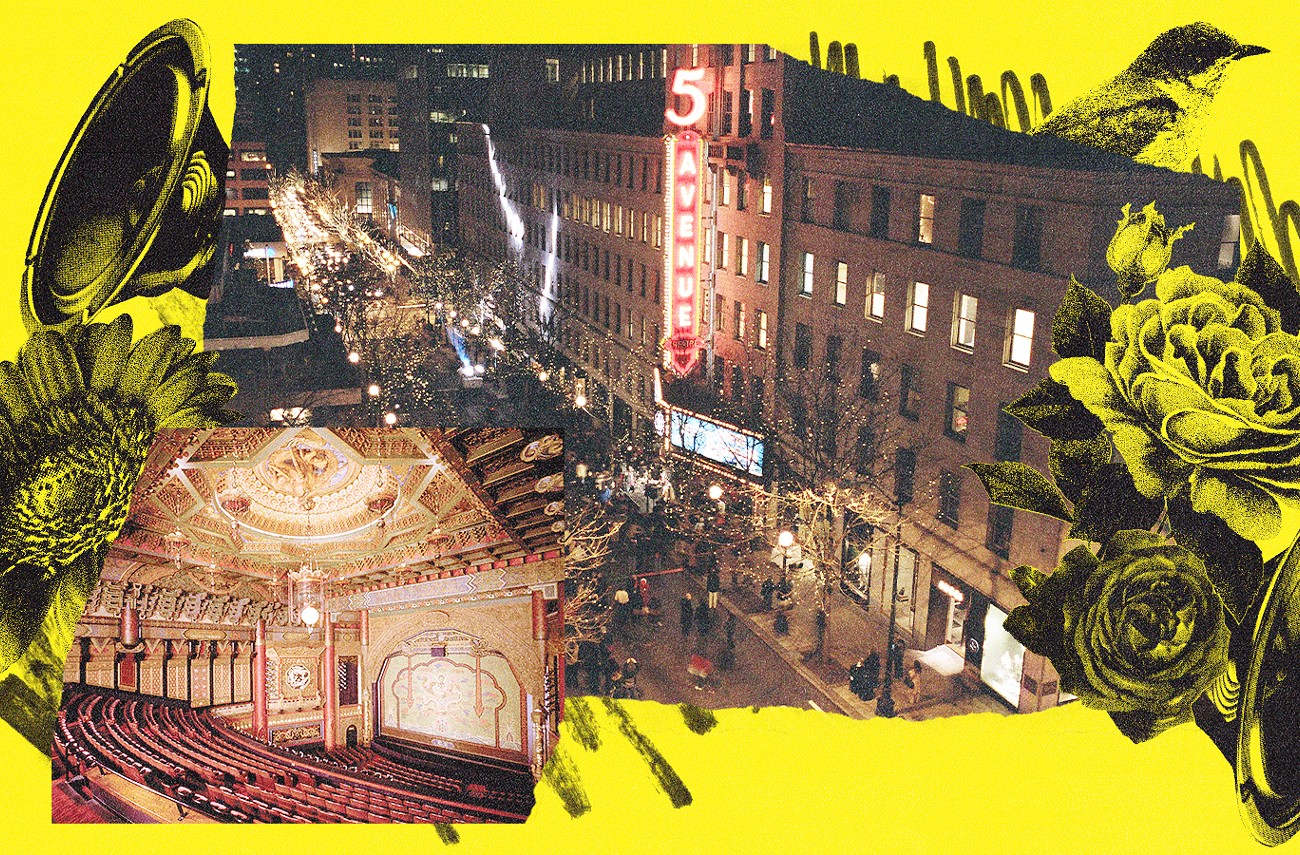Local Music Spotlight: 15 Shows to Check Out in the Rest of 2022
Support Local Bands and Artists at These November and December Shows
Seattle’s Music Scene Is Broken: Here’s How We Can Begin to Fix It
We Spoke to Musicians, Talent-Buyers, Club Owners, and Leaders in the Music Community to Find Out What Happens Next
Superunknown
The State of the Seattle Music Community From Talent Buyers' Perspective
Posse on Broadway
The First Draft Program at 5th Avenue Theatre Seeks to Transform Musical Theater
Help Is on the Way
Seattle Is Synonymous with Sub Pop, Pearl Jam, KEXP—You Know, Music—So Why Doesn’t the City Take Better Care of Its Music Community?
Dig Me Out
Musicians Are Beginning to Prioritize Mental Health—Are There Enough Local Resources to Make Lasting Change?
Something Bigger, Something Brighter
Seattle’s Music Scene Needs More Than Just Money, It Needs New Blood
Wanting to Stay
How Two Musicians—One Established, One New to Town—Are Making Ends Meet
“We just did a radio play that closed about a month ago called Wonderboy,” says Nina (Neen) Williams-Teramachi, Associate Director of New Works at the 5th Avenue Theatre. “A trans superhero musical!”
Wonderboy, created by east-coast composer Jaime Jarrett, is one of several innovative musicals percolating at the theater, which established a program to nurture theater arts in previously-overlooked communities back in 2018.
When you think of musical theater, the old standards might come to mind: Oklahoma!, Gypsy, A Chorus Line, or if you’re feeling particularly au courant Hairspray or Hamilton. But a new wave of talent is building behind the scenes, nurtured by organizations like the 5th Avenue Theatre, with dreams of telling stories that many audiences have never even imagined.
“Our flagship is our First Draft program,” says Williams-Teramachi, running through the organization’s various initiatives to foster up-and-coming talent. “The whole point, our whole ethos … is to have a specific prioritization for voices that have typically been left out of the musical theater canon.”
To that end, they periodically assemble groups of people working on a diverse range of new works; then over the next two-ish years, these cohorts are provided with various opportunities like story workshops, meet-and-greets with industry professionals, and recording sessions. They get studio space, time with actors to hone their craft and—crucially—they are paid for their time. It all culminates in the shows getting their first table read, sometimes an industry reading and sometimes just for family and friends.
In addition to Wonderboy, recent works also include a show called Yoko's Husband's Killer's Japanese Wife, Gloria, which looks at the Beatles from a unique perspective: “Did Yoko Ono really break up the Beatles? Was Gloria Abe actually responsible for her husband killing John Lennon?” the show’s description asks. “And if Asian women will inevitably be blamed for the actions of their white husbands, shouldn’t they at least get a say in the matter?” The show calls for a cast of six Asian American women, and through 5th Avenue’s program, creators Erika Ji, Clare Fuyuko Bierman, and Brandy Hoang Collier were able to hone their show through meetings with Asian community members.
Such focused work would be difficult for creative teams working on their own—particularly with the pandemic and economic upheaval of the last few years.
“With rising rent in Seattle, and the cost of living, there’s a lot less room for folks to take on a passion project,” says Williams-Teramachi. “Five years ago, there was a larger handful of theaters that were inexpensive to rent to put on your own stuff. It’s not the same anymore. A lot of those theaters closed during the pandemic because of rent costs.”
In addition, they say, there’s been more local turnover. Key figures in the local arts scene are more likely to move away, leaving behind gaps in institutional and cultural knowledge.
Still, Williams-Teramachi remains optimistic. “I think opportunities still abound,” they say, particularly with the stability afforded by union houses like the 5th Avenue Theatre.
In the last few years, the theater’s programs for new musicals have fostered shows like Desdemona Chiang’s Half the Sky, which tells the story of a woman climbing Mount Everest against a backdrop of traditional Thai and Himalayan folk music. There’s also Here and Their, “a journey across the country and through the gender spectrum,” and Miss Step, “a heartfelt '80s dance musical comedy featuring a transgender/non-binary (TGNB) cast, live aerobics, stunts, competition, and exercise.”
These shows aren’t quite ready for their big debut—yet. The 5th Avenue Theatre programs are just one step in the journey to the stage. With a little luck, they could be coming to a theater near you in the next few years; or this work might simply inform future projects from the participants.
“The whole point of this is to make sure these folks feel supported and are able to get their voices out,” says Williams-Teramachi. Other new-musical programs have a single-minded determination to reach Broadway, but that, they say, is not the goal here. “We want you to feel empowered to tell your story, because your story is important, and wherever that goes … that is still a success.”














